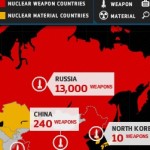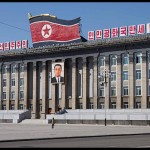by Jungmin Kang 10 July 2014 Originally published 5 March 2014 for Korea Advanced Institute of Science and Technology, Daejeon, Republic of Korea. I. Status of and Prospects for Nuclear Power in the Republic of Korea One of the most rapidly growing developed countries in the world today, South Korea (the Republic of Korea, or ROK) has been increasingly relying on […]
Archives
Renewable Energy Burst in Japan
by Kae Takase 28 May 2014 (Originally published February 9, 2014 for Hanyang University Energy Governance and Security (EGS) Center.) I. INTRODUCTION In the tragic aftermath of the March 2011 earthquake (the Great East Japan Earthquake) and tsunami, and the resulting Fukushima nuclear plant disaster, as all of Japan’s fleet of nuclear reactors were shut down, apparently […]
Security Requirements in Northeast Asia

by John On-Fat Wong 14 May 2014 I. INTRODUCTION by peter hayes In 1982, John on-fat Wong wrote a dissertation at the University of Wisconsin that posited that every state in Northeast Asia had gone nuclear. He examines four geopolitical scenarios (1990) for Northeast Asia: general détente, limited bilateral détente, new cold war, and general cold war. […]
Illustrative Assessment of the Risk of Radiological Release from an Accident at the DPRK LWR at Yongbyon
by David F. von Hippel and Peter Hayes 6 May 2014 The Nautilus Institute for Security and Sustainability I. INTRODUCTION The March 11, 2011 Sendai earthquake and resulting tsunami, in addition to causing tragic loss of life in Japan, triggered a series of events at the Fukushima Dai-ichi nuclear power plant that resulted in the release […]
The Japanese Energy Sector and Nuclear Spent Fuel Scenarios
by Kae Takase 29 April 2014 From the Governance Design Laboratory (GDL), originally published on December, 2013. I. INTRODUCTION: Brief history of the japanese energy sector The Japanese economy, as measured by gross domestic product (GDP) grew rapidly during the 1960s through the1980s. In 1991, what has been called Japan’s “ bubble economy”, crashed, ushering […]
An Updated Summary of Energy Supply and Demand in the Democratic People’s Republic Of Korea (DPRK)

by David F. von Hippel and Peter Hayes 15 April 2014 This Special Report was originally published as a Working Paper 2014-2 by the Center for Energy, Governance and Security at Hanyang University, Seoul. Photo: Pixabay GFS-Mizuta thank you! I. INTRODUCTION During the decade of the 1990s, and continuing into the second decade of the 21st century, a number of […]
Deep Borehole Disposal of Spent Fuel: International Developments and Implications for NE Asia
by Neil A. Chapman 25 March 2014 This Special Report was originally published as a Working Paper 2013-12 by the Center for Energy, Governance and Security at Hanyang University, Seoul. I. INTRODUCTION Deep borehole disposal (DBD) has been discussed as a possible means of disposing of spent fuel (SF) from nuclear power reactors in some East Asian countries, to support […]
Shale Gas Revolution and Desperate “Eastward” Energy Policy of Russia
North America’s shale gas revolution has fundamentally changed North America’ s energy market, thereby bringing new opportunities and challenges to the Northeast Asian LNG market.
For North America, due to the increase in shale gas production, the export-import structure of gas in the US has been reversed, and the possibility of energy independence has increased. In the meantime, Canada, being almost fully dependent on the US for gas export, can not help but explore new markets, which is in fact the Asian market.
For major Northeast Asian gas importers, such as Japan and Korea, which are heavily dependent upon the Middle East and East Asia, Russia’s East Siberia is considered a new alternative for the purpose of diversifying LNG import sources for the past decade. Therefore, Northeast Asian countries tried their best to secure East Siberian gas through enhancing their bilateral relationships with Russia. However, due to the recent shale gas revolution in North America, the Northeast Asian region now encounters new opportunities in LNG contracts, which is totally different from the situation in the past.
In the mean time, once the negotiation on gas prices between Russia and China is settled, 38bcm of Russian gas will be introduced to China, In this regard, Korea and Japan should pay attention to the possible revamp in the Northeast Asian energy market and the impact related to securing energy supplying sources.
Under these circumstances, the introduction of American shale gas with a cheap price and favorable conditions Ci.e., Henry Hub price, without the clauses of take or pay and destination, etc.), or Canadian gas with relative advantages in terms of transportation distance and gas reserves, is predicted to exert a significant impact on the Northeast Asian LNG market.
Given that Northeast Asia has been significantly dependent on the Middle East or neighbouring East Asia in terms of energy security, if the region become the beneficiaries of North America ‘s shale gas revolution, the most notable thing would be that America and Canada, which have been alliances in political and military contexts, will become alliances of Korea and Japan in energy security as well. It can be referred to as a grand paradigm shift.
Apart from North America, Australia and East Africa have huge potential in gas production, which can enhance the buyers’ power in the Northeast Asian LNG market.
For Korea, the implication of East Siberian gas is not simply limited to the area of energy security, since the PNG project (gas pipeline linking Russia and South Korea via North Korea) based in East Siberian gas fields are considered as important methods to secure peace and prosperity on the Korean peninsula and in Northeast Asia. However, this project is thought to have missed a good time to be commenced, and Russian gas is losing its price competitiveness s compared to North America and Australia.
In conclusion, it is necessary to establish new rules and policies in the Northeast Asian energy market and within the regional situation as a whole. Initiatives on the LNG trading hub in the Asian region should be pushed forward through closer regional cooperation. In particular, Korea, Japan, and China, as major consumers, have to share common interests and make the maximum use of the favorable conditions of the shale gas revolution. Furthermore, the scope of cooperation should not be limited to Northeast Asia, which includes Korea, Japan, China, etc., but be expanded to the Asia Pacific region including North America.
LNG Import Diversification in Asia

Asia’s share of global demand for natural gas has increased from 13 to 18 per cent over the past decade, and t…
The Impact of the “Shale Gas Revolution” on Russian Energy Strategy
The successful development of shale gas extraction and production in North America has spread a positive outlook within the international energy community, which envisages that a great availability of gas in the next years will contribute to diversifying the energy mix, reducing emissions, and enhancing energy security. However, the emergence of the “shale revolution” is perceived as a serious energy threat by Russia, because it could severely affect its role as a major gas supplier. Thanks to the combination of LNG developments and shale gas production, a growing gas availability in global markets poses questions about the ability of Russia to keep gas exports to Europe at current levels and to develop the Eastern vector through growing gas exports to Asian markets.
Fabio Indeo holds a Ph.D in Geopolitics, Geostrategy and Geoeconomy at the University of Trieste (Italy). Currently he is EGS researcher and lecturer on “Conflicts and energy resources” at the Master in Peacekeeping and Security Studies (University of Roma Tre, Italy). His research fields are energy security, and geopolitics of pipelines and energy transport routes.

